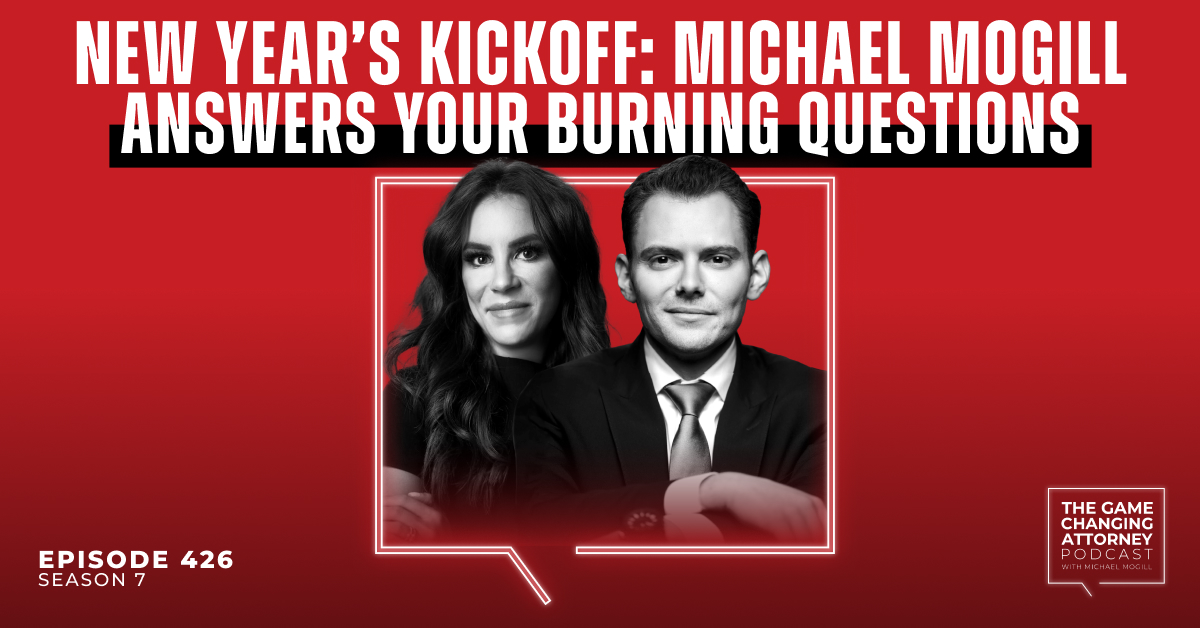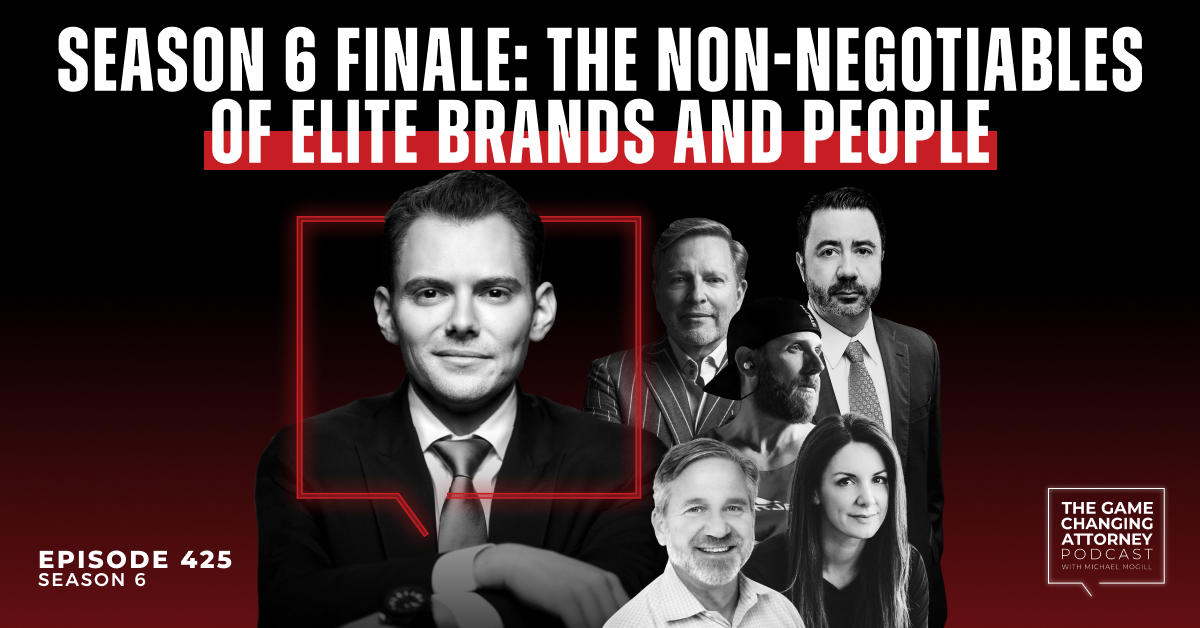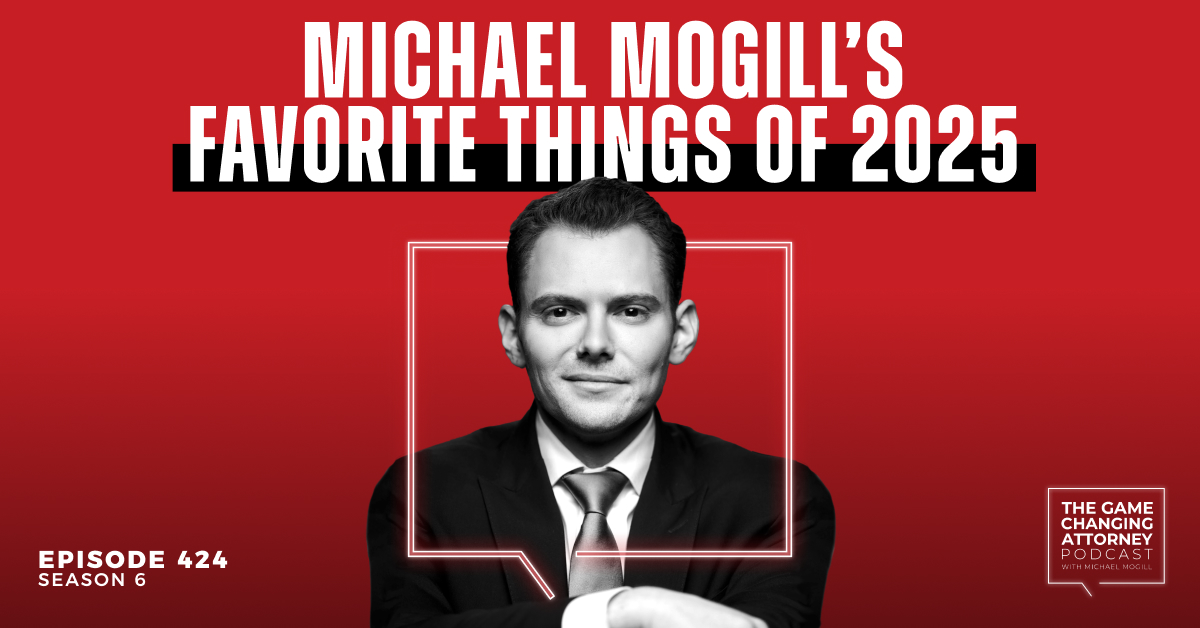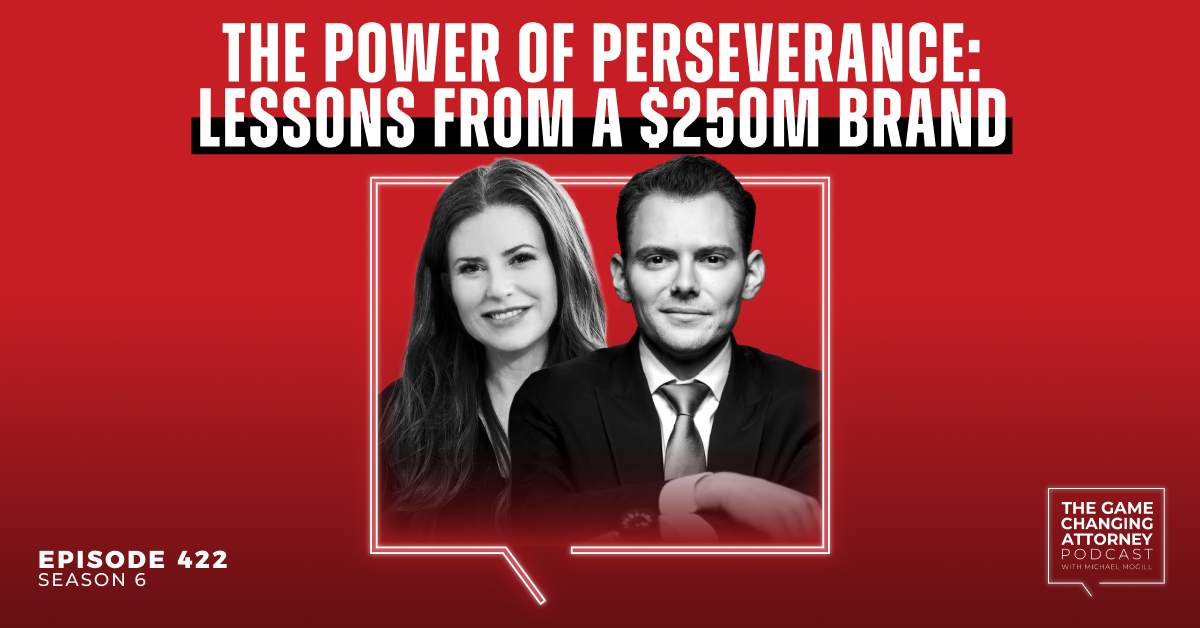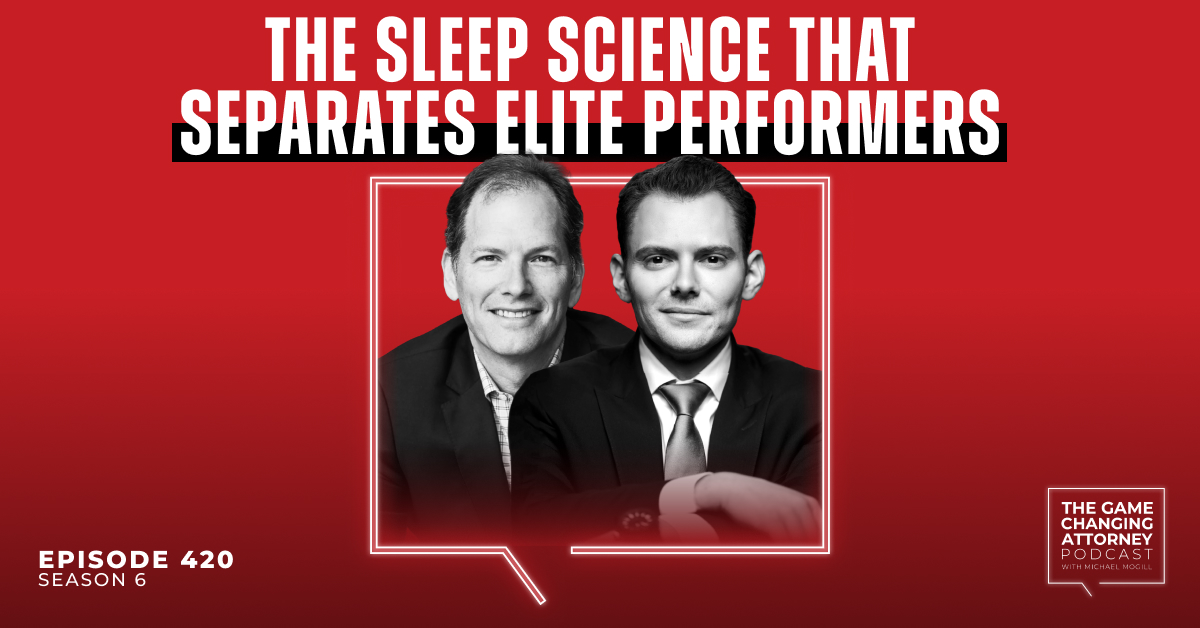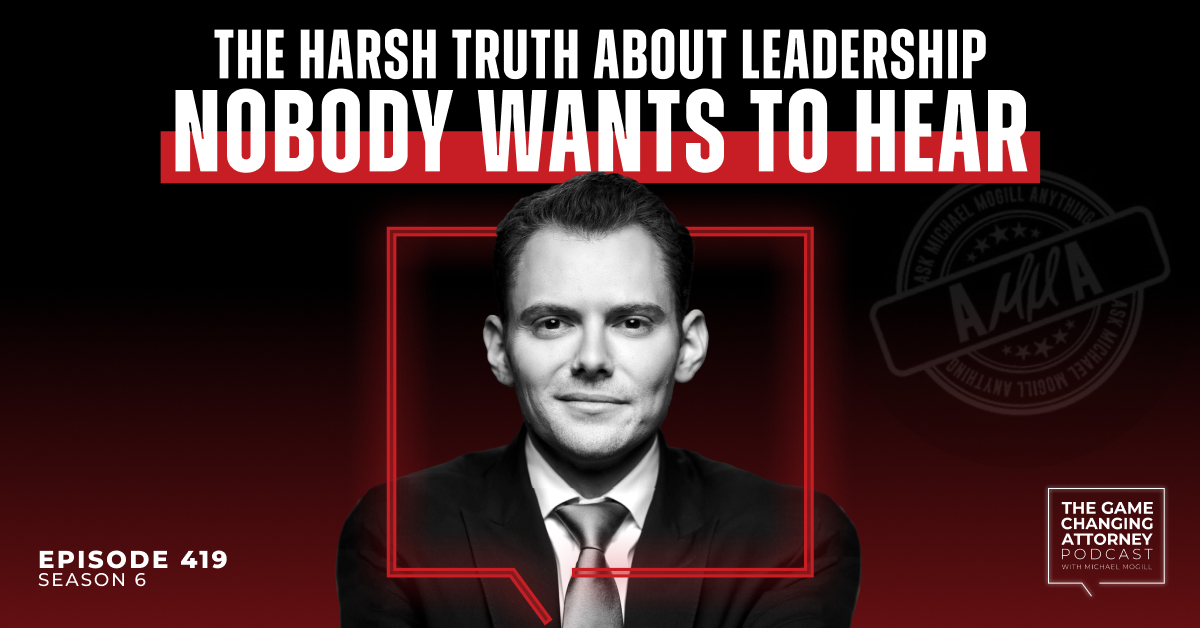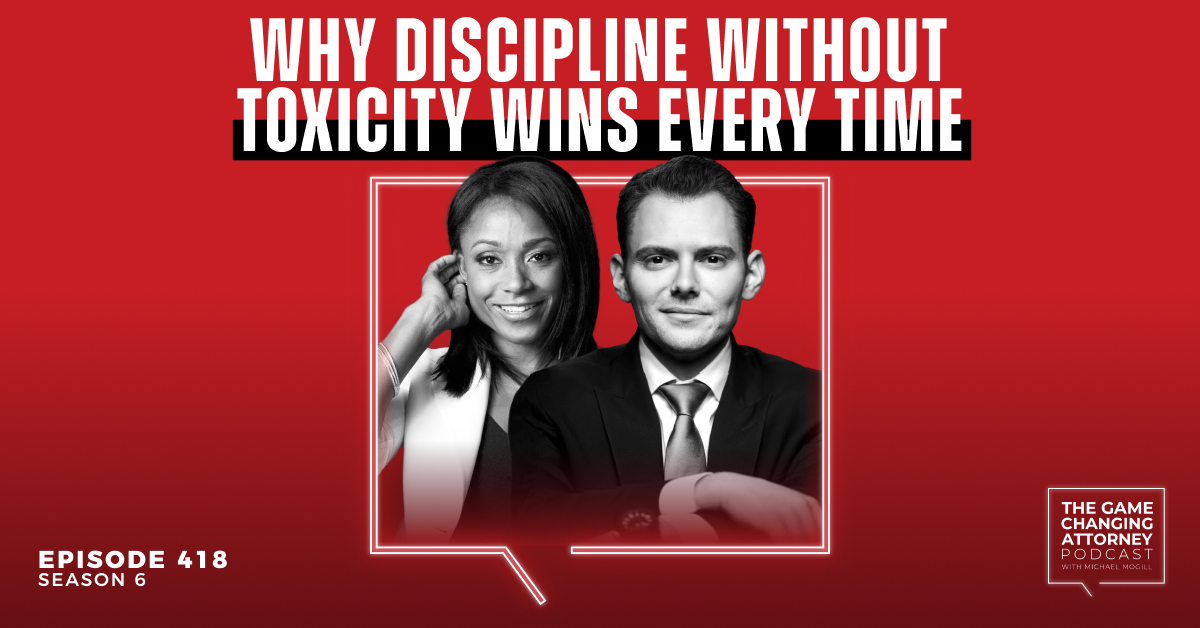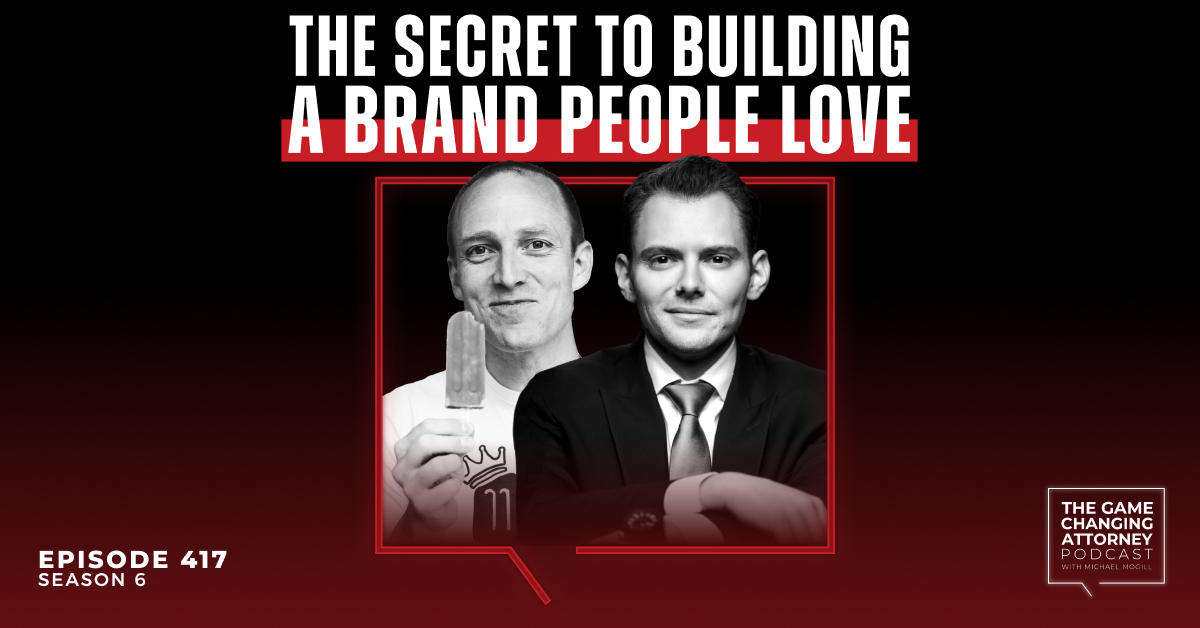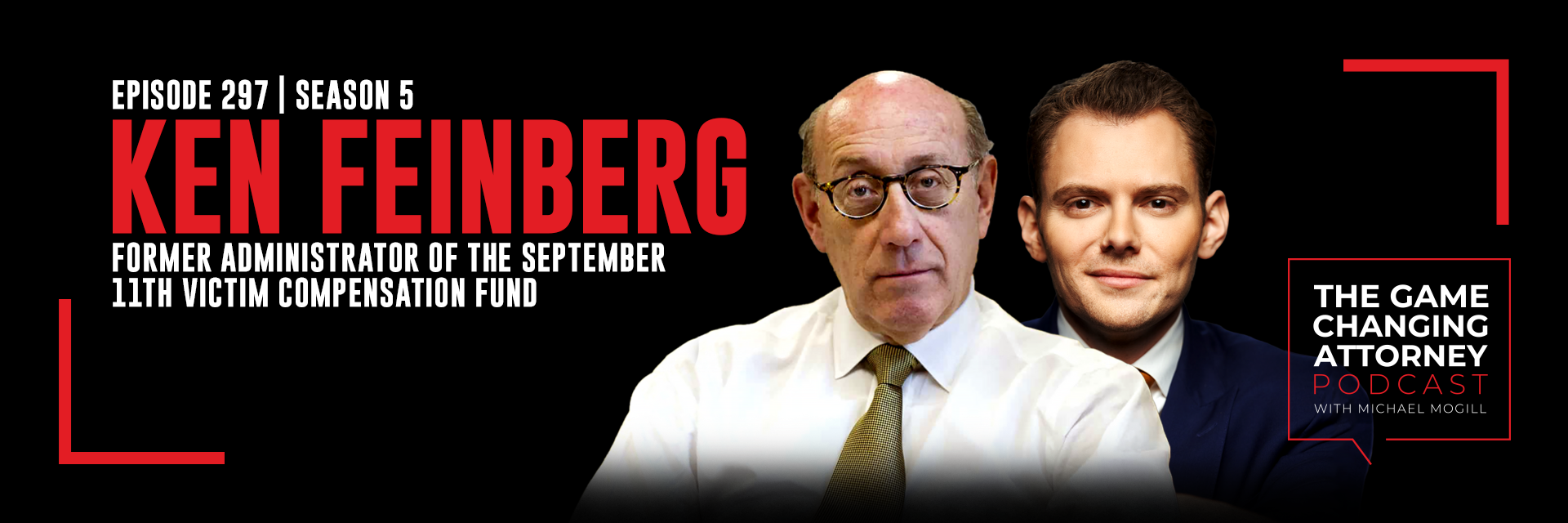
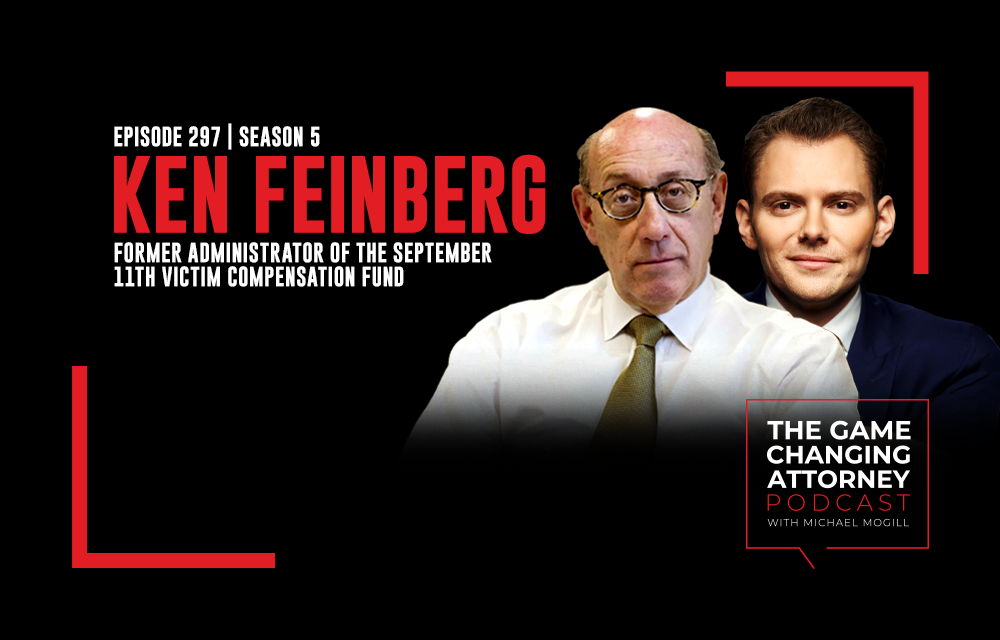
Episode 297 — Ken Feinberg — Behind the 9/11 Compensation Fund: Navigating Tragedy & Complex Mediation
How would you survive making life-or-death decisions with the world watching your every move?
Ken Feinberg is a renowned alternative mediation and dispute resolution attorney, best recognized for his pivotal role as Special Master of the 9/11 Victim Compensation Fund.
His work, however, spans a wide range of other major settlements, including overseeing compensation efforts for the Agent Orange case, the BP Deepwater Horizon spill, and the Boston Marathon bombing — managing the distribution of billions to victims and their families.
In this timely encore edition episode of The Game Changing Attorney Podcast, Michael Mogill and Ken discuss:
- The deeply subjective nature of assigning monetary value to human life
- The often underappreciated influence individuals truly possess
- Key takeaways from the groundbreaking initiative to compensate 9/11 victims
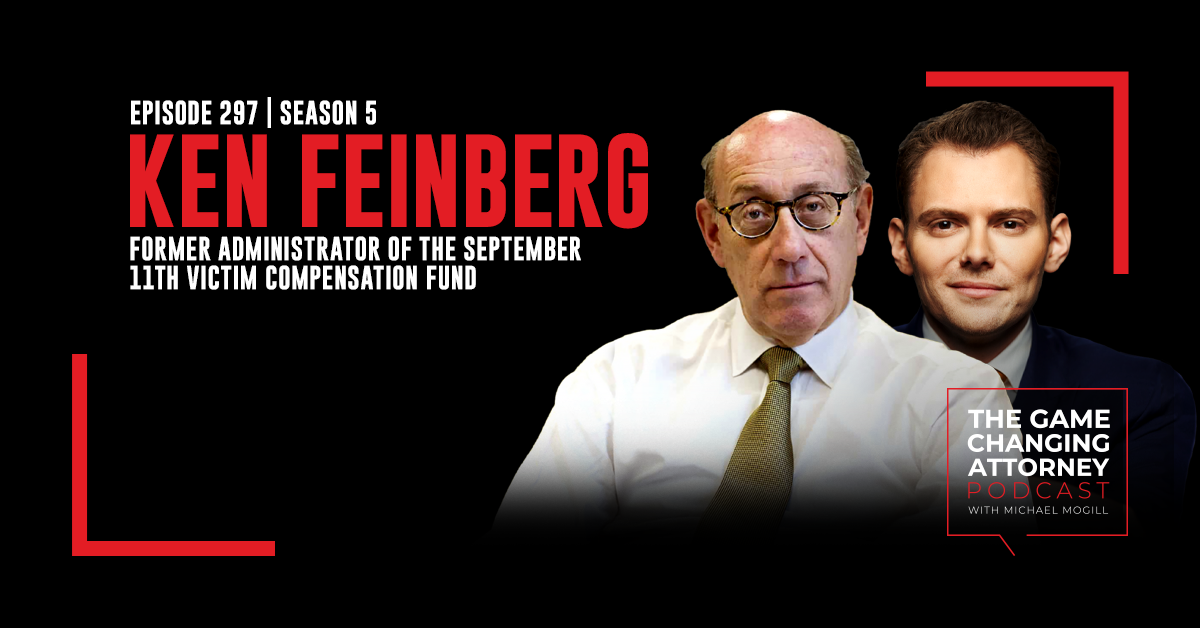
Listen & Subscribe
Show Notes:
The emotional toll of justice. “The impact of meeting with hundreds of families and surviving victims in private was emotionally debilitating. That’s why 9/11 stands at the top of all the programs I’ve undertaken in terms of the challenges and adverse impact on the psyche.”
Uncompensated dedication. “I had the rest of my law firm — three or four lawyers — diligently doing other payable work so that I could afford to devote all of my time to the 9/11 fund without compensation or reimbursement of any type. The firm continued to function on a reduced basis, but we managed to pay the bills.”
Empathy’s unforgiving edge. “Most of the mistakes that we made were mistakes of empathy and emotion. One point in the movie and the book that I emphasize is the mistakes you make in dealing with claimant family victim emotion aren’t in the calculations; it’s the emotion. It’s how you confront the anger and life’s frustrations exhibited by the families and the victims. That is where you better brace yourself for the real challenges.”
Staying objective. “I don’t think anybody who designs and administers these programs can remain totally objective, especially if there are family members or victims who want to talk with you about their plight and how the disaster impacted them personally. Anyone who thinks you can administer these programs with the type of objectivity that appears on the written page will find that unless you have a heart of stone, there’s going to be an emotional component to all of this. It can’t be avoided if you’re a human being.”
Listening through life’s curveballs. “You become much more fatalistic. I don’t think I plan more than two weeks in advance. You don’t know what curveball is going to be thrown at you tomorrow. These innocent victims were just in the wrong place at the wrong time — fate. Also, you become a much better listener. Over the years, I’ve become much more tuned into exhibiting empathy through silence. You’re just listening as a sounding board.”
Unity beyond politics. “I urge people to see the movie Worth, especially young people. That movie is actually quite uplifting today. It shows the American people today how just 20 years ago, the country rallied around the victims. It wasn’t blue states/red states, liberal/conservative, Republican/Democrat. Everybody — apolitical and bipartisan — wanted to help.”
9/11: Lawyers stepping up. “You know, President Kennedy said, ‘Every individual can make a difference.’ Lawyers who are listening to this podcast that want to give back to the country: there are myriad ways that you can provide in the public interest. The 9/11 Fund never would have succeeded the way it did if it weren’t for the 1,500 lawyers who dropped what they were doing and helped represent all of the victims, pro bono, in submitting claims to the fund.”
Discipline starts at dawn. “I’ve always found a great benefit in the fact that I’m an early riser. I’m at my desk by 7:00 AM, and by 9:30 AM, I’ve accomplished a great deal because the phone starts ringing at 9:00. I think you develop discipline. Every lawyer is different, but you develop habits and an approach to get your work done efficiently. My approach is to be an early riser, and I don’t take work home at night.”
What does being a game changer mean to you? “Lawyers should practice however they get fulfillment. Don’t be a lawyer or a member of any profession where you don’t think you’ve accomplished what you want to accomplish.”
Connect with Michael
- Text directly at 404-531-7691
